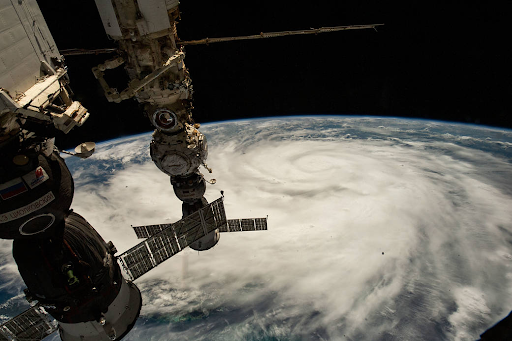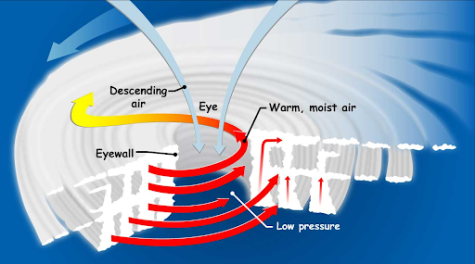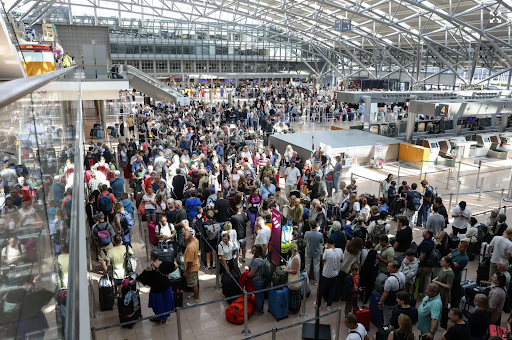How Do Hurricanes Work? And How Does Climate Change Factor In?

A peek at Hurricane Ian from the International Space Station.
Extreme flooding in Puerto Rico. Homes swept away in Florida. As we approach the tail end of hurricane season, let’s take a look at why these hurricanes were so destructive.
First, how do hurricanes form? According to an article from NASA, hurricanes all begin over tropical waters. Why? Near the equator, waters are warm, heating up the air over the ocean. Because the air at the surface of the ocean is warm, the air rises, leaving less air near the surface (for an explanation on why this happens, check out my article on why hot air rises). This creates an area of lower air pressure. Air from areas of higher air pressure swirls into the lower-pressure area. This air becomes warm and rises as well. The air that rises cools off when it gets farther from the warm ocean water, and the water in that air condenses to create clouds. This cycle continues, creating a spinning system of clouds and wind— a hurricane, or more generally, a tropical cyclone. Technically, a hurricane becomes official when its winds reach 74 mph, but the system is basically the same— just more powerful.

Essentially, hurricanes depend on warm ocean waters for energy. It follows that warmer waters would provide more energy, strengthening hurricanes.
In comes climate change. As Earth warms, so do the oceans and the air. Warmer air can hold more water vapor, which can cause more intense rainfall. And warm waters, as we know, fuel hurricanes. So, what does climate change mean for hurricane season?
According to an article from NASA, a warming world brings more intense hurricanes. Because the air can hold more water, there is an increased potential for larger amounts of rainfall. And because the oceans are warming, they provide more fuel for storms. According to climate models, the number of hurricanes may not increase, but each hurricane bears an increased risk of becoming a powerful Category 4 or 5 storm.
Even as we look at recent storms like Fiona and Ian, we can see that flooding and rainfall are prominent features. Climate change brings us another new “new normal” for hurricane season. Wonderful.
By Hana Shinzawa ‘24, Co-Assistant Editor-in-Chief and Science Editor
24hshinzawa@montroseschool.org










